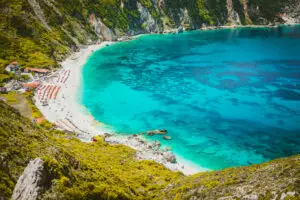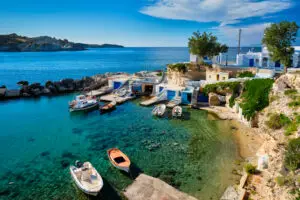When Poseidon's Pottery Went Overboard
Picture this: A proud merchant vessel, filled to the brim with Bronze Age Tupperware (aka ceramic jars and kitchenware), gliding through the Aegean Sea. The crew likely felt invincible. “We’ve got pottery! What could possibly go wrong?” they might have shouted, shaking their amphorae in triumph. Little did they know that this sea voyage was destined for a Titanic level of disaster—except with less iceberg and more confused sailors trying to figure out why they were suddenly underwater.
Historians claim the ship was carrying goods for trade—probably some ancient version of Amazon Prime, except with much slower delivery times. Poseidon, however, had other plans. Perhaps he was in a particularly grumpy mood that day, or maybe he just got tired of being ignored in favor of all the cool mainland deities. Whatever the reason, this ship ended up at the bottom of the sea faster than you can say “Aegean adventure.”
Now, the crew was most likely fine, but the ship? Not so much. The wood disintegrated over time, but the pottery survived, preserved like forgotten leftovers in the world’s most ancient fridge. And what do we have today? A sunken treasure trove of ancient dishes—because, clearly, Poseidon felt that mankind could use a good laugh when we dug it up a few thousand years later.
So, what have we learned from the Dokos shipwreck? If you’re going to set sail in 2200 BC, always double-check with Poseidon first. You never know when he might decide to test your pottery’s seaworthiness. Or, at the very least, hire a better captain.
- Skippers, visit: Dokos Anchorages.
Explore Greece by Sea with GrecoSailor: Personalized Itineraries for Every Traveler
– Explore the Magic of the Greek Seas, Your Way.
– Custom Sailing Itineraries Designed Just for You.
Contact Us Now to Create Your Dream Sailing Itinerary [email protected]




